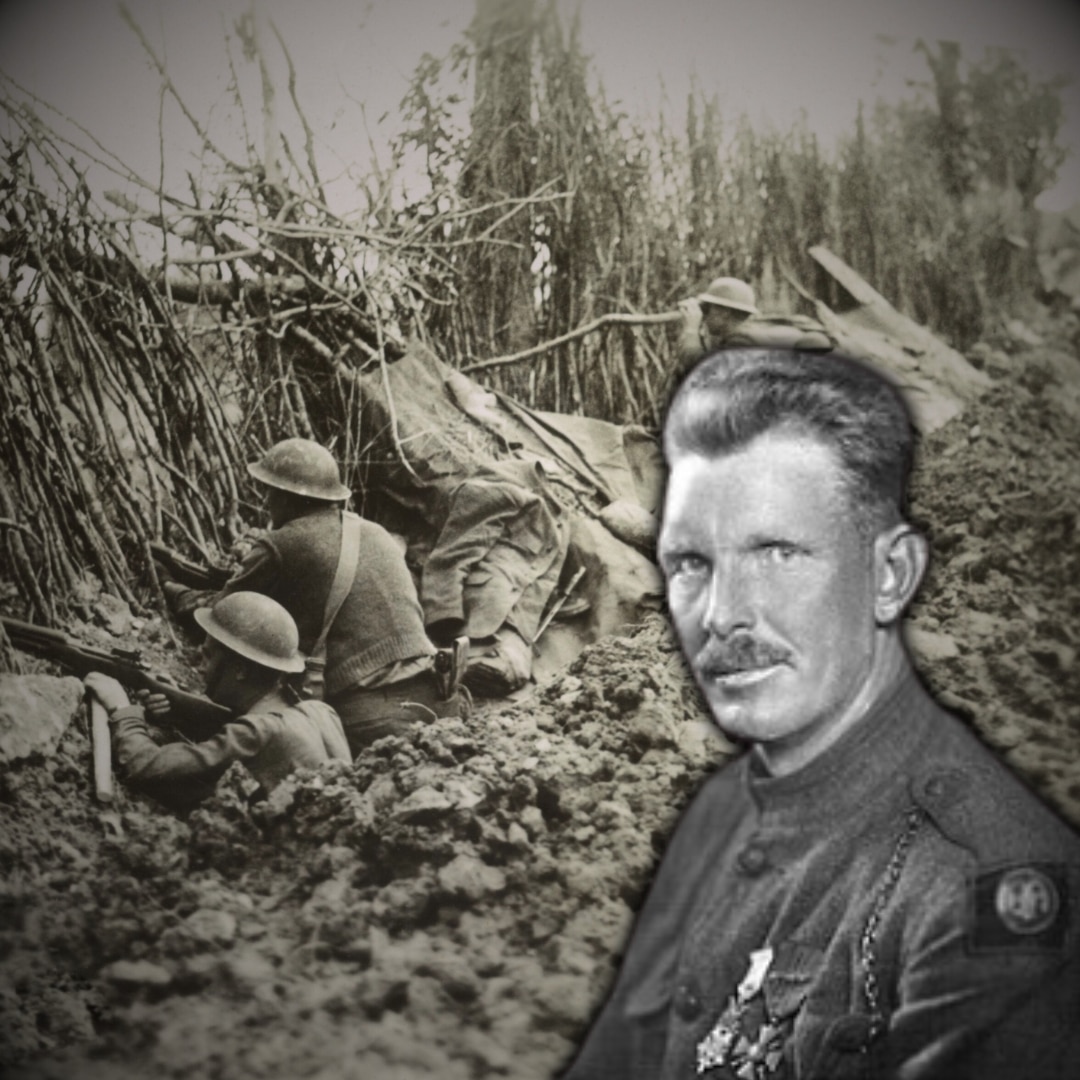
The tale of Alvin Cullum York is not merely one of personal courage; it encapsulates the transformative journey of a man from the pastoral hills of Tennessee to the blood-soaked battlefields of France during the Great War.
York's initial moral opposition to the war, rooted in his devout Christian faith, stands in stark juxtaposition to the valor he would later display in the Argonne Forest. His acts of heroism on October 8, 1918, which significantly disrupted German defenses, did not simply arise from martial prowess but also from a complex interplay of duty, belief, and a profound sense of responsibility towards his fellow soldiers.
Indeed, the dichotomy within Alvin York—of the pacifist turned warrior—invites a deeper examination of the circumstances that can forge such a figure. As one contemplates the enduring legacy of this reluctant hero, questions emerge about the nature of bravery and the forces that galvanize an individual to such extraordinary feats in the crucible of war.
Alvin Cullum York was born into a humble rural life on December 13, 1887, in Pall Mall, Tennessee, where he honed his physical prowess through his early work as a blacksmith.
In the rolling hills of Fentress County, near the banks of the Wolf River, young Alvin grew up in a log cabin, a common dwelling of the era that reflected the simplicity and challenges of life in the region.
This formative environment, steeped in the values of hard work and family, shaped not only York's robust physique but also his proficient marksmanship, earning him a reputation as a crack shot in his community.
The forge and anvil shaped Alvin York in Cumberland Hill, Tennessee, before the Great Depression and his military service. His life story, from elementary education to his role in high school, remained anchored to the rural landscapes of his upbringing, where manual labor was the cornerstone of survival and success.
The skills and strength he developed as a young man, working with iron and fire, would later become his assets in the crucible of World War I.
On the battlefields of World War I, Sergeant York's extraordinary gallantry, which led to the capture of 132 German soldiers, solidified his status as an emblem of American heroism and earned him the nation's highest military decoration, the Medal of Honor.
The Meuse–Argonne offensive, a critical campaign during the conflict, was the backdrop to Sergeant Alvin Cullum York's display of remarkable courage.
Initially a conscientious objector due to his religious convictions, York's valiant actions contrasted with his peaceful stance, as he navigated the ethical complexities of war.
Armed with only a rifle and a revolver, York faced a German machine gun nest that was decimating American lines. With unwavering resolve, he neutralized the threat and, in a stunning turn of events, captured numerous enemy soldiers.
In battle, his heroism saved countless lives and exemplified military lore's spirit of self-sacrifice and bravery.
Released during World War II, the film 'Sergeant York' further cemented Alvin York's legacy post-World War I, capturing the nation's imagination and portraying him as a national icon of valor and duty.
While the echoes of Sergeant York's battlefield triumphs lingered long after the guns fell silent, his post-war legacy emerged as a lasting beacon of American valor and patriotic inspiration.
Sergeant Alvin York, a distinguished member of the United States Army, became a celebrated American figure, his life story and war heroism serving as a symbol of courage for future generations.
Historians have extensively studied his war diary experiences, and they continue to feature in history books and educational materials, highlighting the significance of individual valor and leadership during World War I.
Various forms, including a film, have memorialized York's extraordinary deeds. The 1941 movie 'Sergeant York,' starring Gary Cooper as the titular hero, further immortalized his actions and earned an Academy Award, bringing York's story to an even wider audience and solidifying his status as an American icon.
York's post-war legacy, rooted in his selfless service and leadership, remains a powerful reminder of the noble sacrifices made by soldiers, like Corporal York, in defense of their nation.
Alvin Cullum York's exemplary actions during World War I stand as a testament to the profound impact of individual courage on the course of history. Awarded the Medal of Honor for his extraordinary heroism, York's legacy endures, encapsulating the embodiment of valor and leadership in the face of adversity.
His deeds during the conflict not only altered the outcome of crucial engagements but also continue to serve as an inspiration for courage and duty.
During the Meuse-Argonne offensive in WWI, Alvin York's heroic assault and fearsome marksmanship led to the capture of German soldiers, exemplifying distinguished service in trench warfare and infantry tactics.
Alvin York initially faced an ethical dilemma due to his pre-war faith, grappling with conscientious struggles and a pacifist stance. Deep religious beliefs and moral conflict shaped his internal debate on draft resistance.
Sergeant Alvin York, a decorated soldier, received numerous military honors for his gallantry in World War I. His medal count includes the Medal of Honor among other heroism medals and bravery commendations.
Alvin York's transformation from a Tennessee farmer with pacifist beginnings, due to his religious convictions, to a skilled marksman in combat illustrates his unlikely heroism, overcoming a moral dilemma and draft conflict with rural tenacity.